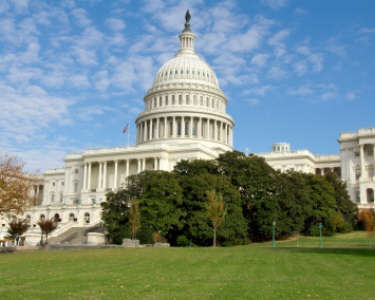Hate Crimes Measure Passes
 A controversial hate crimes measure that many Christian leaders feared would criminalize preaching against homosexuality has passed.
A controversial hate crimes measure that many Christian leaders feared would criminalize preaching against homosexuality has passed.
In a 68-29 vote Thursday, the Senate approved the hate crimes measure, which was attached to a $660 billion defense-spending bill. The lawadds sexual orientation to the list of federally protected classes, which previously included race, religion, color and national origin.
The bill also gives states and local jurisdictions federal assistance to prosecute hate crimes, and makes it a federal crime to attack U.S. military personnel because of their service.
The bill now awaits approval from the president, who has expressed support for the hate-crimes law.
The Family Research Council (FRC), which has lobbied against the hate crimes measure for several months, is calling on President Obama to veto the legislation.
FRC President Tony Perkins said attaching the hate crimes measure to the must-pass defense bill is a “slap to the face of our servicemen and women.”
“This hate crimes provision is part of a radical social agenda that could ultimately silence Christians and use the force of government to marginalize anyone whose faith is at odds with homosexuality,” he said.
“Expanding hate crimes puts America in lock step with the stated agenda of homosexual activists who will turn next to the so-called Employment Non-discrimination Act, followed by the repeal of the ban on homosexuality in the military and then the Defense of Marriage Act.”
Although bill supporters said the hate crimes measure criminalizes only violence against homosexuals, several Christian groups worry that pastors would be prosecuted if an attendee of their church commits a crime and blames it on sermons about homosexuality.
“Ultimately, a pastor’s sermon concerning religious beliefs and teachings on homosexuality and gender-confused behaviors could be considered to cause violence and will be punished or at least investigated,” Andrea Lafferty, executive director of the Traditional Values Coalition (TVC), said in an e-mail alert issued last spring when the original hate crimes bill was being considered by the House Judiciary Committee.
“Once the legal framework is in place, political pressure will be placed on prosecutors to investigate pastors or other religious leaders who quote the Bible or express their long-held beliefs on the morality and appropriateness of homosexuality and other sexual behaviors,” she added.
Other evangelical leaders have supported the hate crimes law, including author Tony Campolo, Sojourners founder Jim Wallis and Florida megachurch pastor Joel Hunter.
“I would think that the followers of Jesus would be first in line to protect any group from hate crimes,” Hunter said in April when the bill was being considered by the House, which passed the measure as an amendment to the defense-spending bill Oct. 8.
“This bill protects both the rights of conservative religious people to voice passionately their interpretations of their Scriptures and protects their fellow citizens from physical attack,” he added.
Republicans largely opposed the bill, complaining that Democrats attached the hate crimes amendment to the defense bill to dare Republicans to oppose it.
“It’s a shame that this piece of legislation was added to a bill that’s supposed to be about supporting our troops,” said Republican Sen. Lamar Alexander of Tennessee, according to the Washington Post.
In addition to the hate crimes law, the defense-spending bill authorizes a 3.4 percent pay raise for the military and includes funding for a program to develop an alternative engine for the F-35 Joint Strike Fighter, the Air Force’s multimission fighter of the future.
In June, President Obama called the F-35 fighter program a waste of money and threatened to veto the defense bill if it was included. But the president, who has faced increasing criticism from some homosexual activists for not pushing hard enough on gay issues, is still expected to sign the bill into law, the Post reported.














































